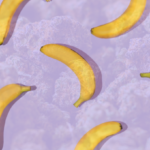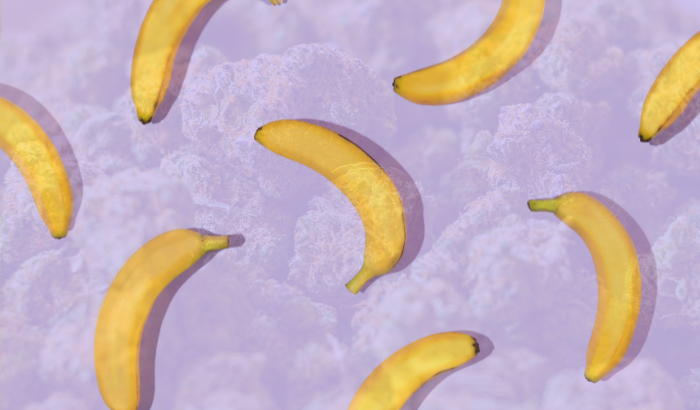
If you think alcohol makes you puke then wait until you see the latest reporting on CHS
All is well in the relatively safe world of legal weed. Until it isn’t! And when things get bad in canna land, you start violently puking all over the place.
That’s the basic structure of most sensational news features about cannabinoid hyperemesis syndrome, or CHS. Typically, the lead subject in such stories started off dandy consuming much weed, then began feeling quite ill and ultimately went to an emergency room where a doctor was like, Hey there silly stoner, your tummy hurts because you do too many bongs, so go ahead and stop that and everything will be fine.
You’d think since there is such a simple fix—according to the Cleveland Clinic Health Library and many others, the only cure for CHS is to stop using cannabis—that public outcry would be minimal. But of course it isn’t, because weed is involved. Despite researchers knowing relatively little about the syndrome, journalists regurgitate more question-filled pieces on CHS than they report on countless lesser-known public health crises that are actual crises.
One review conducted in 2022 and published this year which compared and examined multiple studies found: “As CHS is a relatively recently recognized and studied phenomenon easily confused with other diseases, there is a paucity of sizeable randomized control studies,” with “Most resources and recommendations [coming] from case studies and expert opinions.” That’s not to say some people aren’t impacted, but it’s a mere paucity.
As for what news viewers see online … if you share most segments about CHS on your socials with a retro filter, they could pass as trailers for a modern Reefer Madness remake. Here’s what WCVB recently reported about a “Boston hospital warning of [a] serious cannabis side effect” …
In Massachusetts, cannabis has been legal to smoke, eat or vape since 2016. But since then, at least one Boston hospital says it’s diagnosing more people with a serious — and sobering — side effect.
“They had weeks and months of vomiting,” said Dr. Sushrut Jangi, a gastroenterologist at Tufts Medical Center. “And they were otherwise healthy.”
Since doctors typically want to know a patient’s social history, Jangi would ask them if they smoked, drank alcohol, or used cannabis products. … In most cases, they told him they had been doing “a lot of pot” for a long time.
That’s when Jangi considered cannabinoid hyperemesis syndrome, or CHS.
“The symptoms people experience are nausea, vomiting, and a strange symptom where they feel better after they take hot showers,” he said.
You have the dingbat slacker, and the knowledgeable, helpful physician. Then comes the quick concession—“Doctors still have a lot to learn about the condition and whether it causes any long-term effects”—followed by another reason this didn’t warrant time on the news (italics mine): “That’s because CHS has only been recognized as a diagnosis since 2004.”
Basically, they’ve known about this problem for two decades, but it only really started rearing its head to puke since the scourge of legalization. More from WCVB:
To understand the problem in Boston, Jangi and his colleagues reviewed Tufts’ admissions records, and found nearly all hospitalizations for CHS occurred after legalization.
“Patients were not only presenting more commonly after 2016, but they were presenting with more severe symptoms,” Jangi said. “And one theory is that it’s because the drug itself has changed. People are using it more. People have more access to it. And the potency of the active ingredient — THC — has increased tremendously in the last two or three years.”
“Patients tend to develop this after using cannabis for years and years,” Jangi told WCVB. “It’s not something you’re going to get after using it occasionally or once or twice.”
Finally, some good news! But wait, a “recent study found 6% of people who visited an emergency room for vomiting episodes were later diagnosed with CHS.” Add the danger of legal weed in Mass to that cherry-picked stat which snakes its way into every other hysterical story on the topic, and you have a certifiable Barf-o-Rama on your hands.
And since money is the only thing that matters in this world and it makes all the stupid potheads look bad, here is the financial toll these barf breath burnouts are taking on civilized society:
The review of hospital records showed the bill for treating CHS has increased by 150%.
“It might be because patients needed to stay longer in the hospital and they needed various services,” Jangi said. “In some cases, symptoms can get so severe that they can actually end up in the ICU.”
Thankfully, the paucity of pot people who are impacted by this can just put the pipe down. Unless they are too dumb: “Some will feel relief that we know what the problem is, and they feel motivated to stop using any substance that might be doing this,” the doc told WCVB. “Other people are convinced that’s not the cause, and they try to medicate themselves by using more cannabis. Then their symptoms get worse and they can get sicker.”
I don’t believe the doctor or the journalist in this case have bad intentions. I just don’t think they’re helping. I’m probably not doing too much better, but at the least I hope this serves as a reminder of how outlets of all shapes and sizes still interrogate weed with a guilty lens they rarely apply to food, pharmaceuticals, botox, or really anything else that we put in our bodies. If you or someone you know has concerns related to CHS, we recommend clicking away from any headlines or posts like this one and reading actual studies like this fairly extensive survey and genomic investigation, which relied on one of the largest sample sizes to date. Researchers found, among other things:
CHS is remarkably stereotyped in its presentation: history of regular cannabis use for over 1 year (74.8%), severe nausea and vomiting (100%), vomiting recurring in cyclic patterns over months (100%), resolution of symptoms after stopping cannabis (96.8%), compulsive hot baths/showers with symptom relief (92.3%), male predominance (72.9%), abdominal pain (85.1%), at least weekly cannabis use (97.4%), and history of daily cannabis use (76.6%). Patients tend to be younger, likely reflecting cannabis use patterns rather than predilection. CHS is associated with frequent hospitalizations, negative workups as a “diagnosis of exclusion” whose median costs may exceed $95,000 per patient.
Prior research may also be helpful if you consult a doctor who is a prohibitionist nut. As one roundup of CHS research explains, “case studies and reviews have come out recommending a variety of medical therapies, such as benzodiazepines in the short term, tricyclic antidepressants for long term control, and even antiepileptics such as levetiracetam and antipsychotics such as haloperidol.”
I’ll stop before I start sounding too much like your friend with the healing crystals, but it’s too bad that a story about feeding people pharmaceuticals to cure them from smoking too much weed isn’t as click worthy or easy to report on as theories about why more punks are puking in the ER.

























